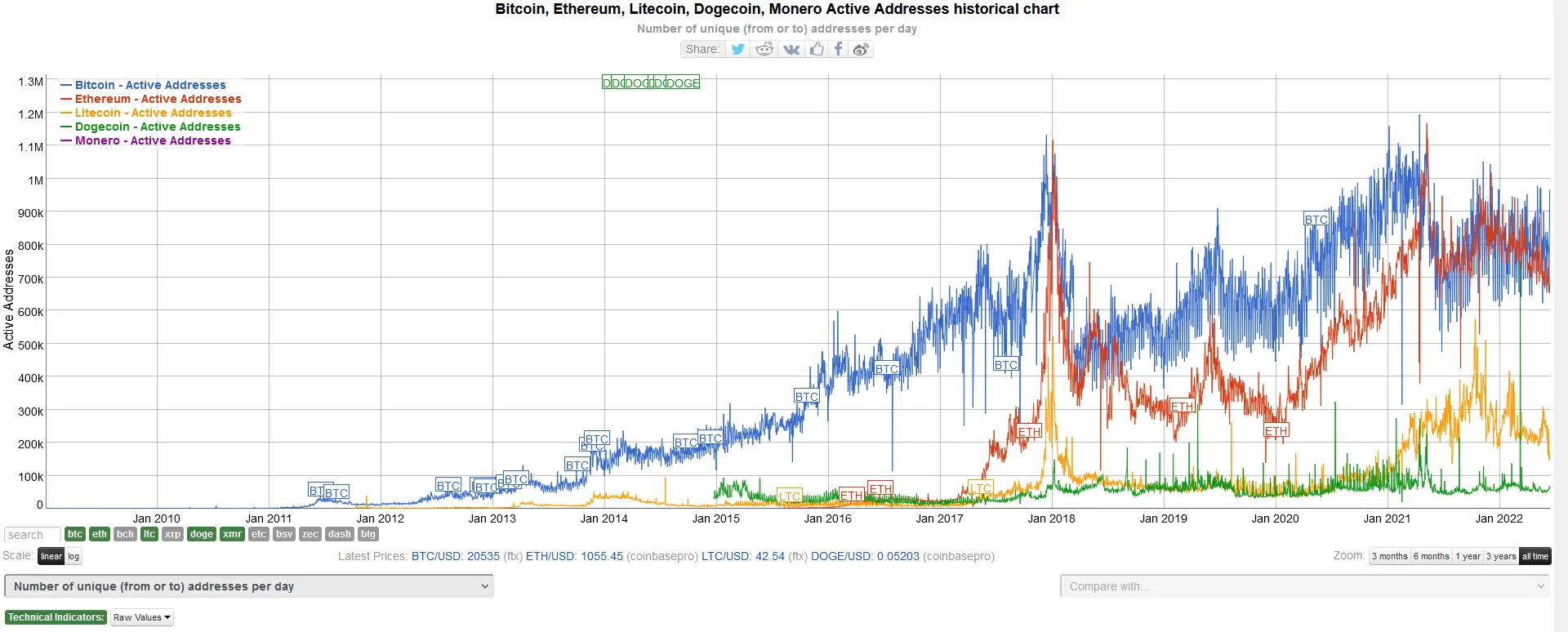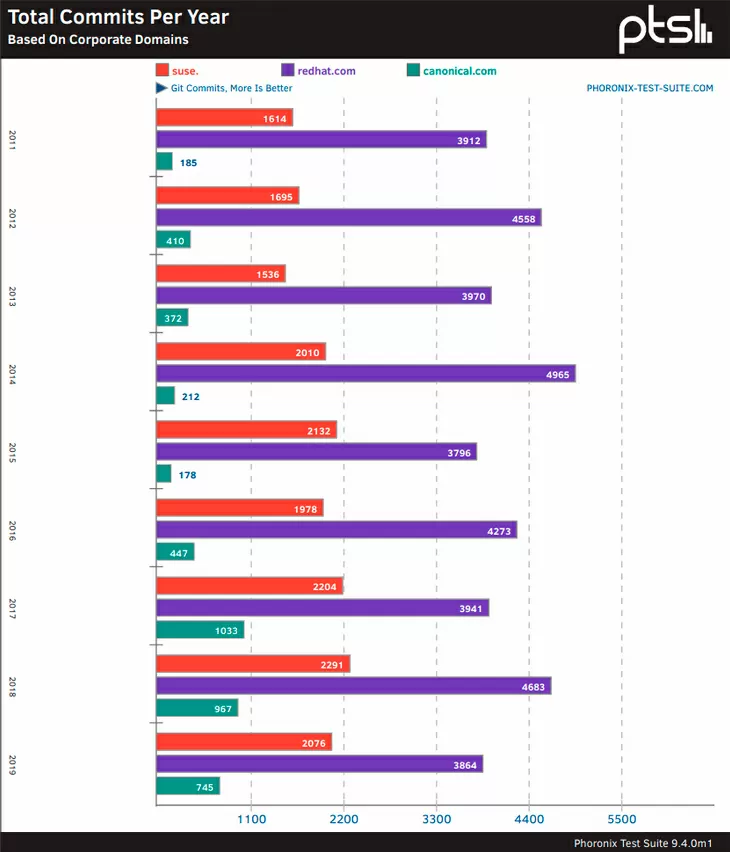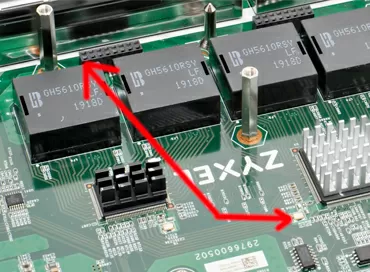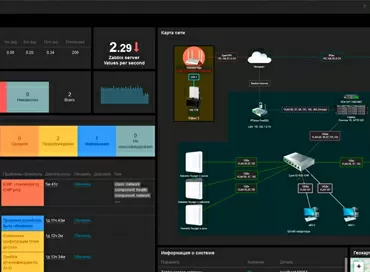What do cryptocurrencies and Linux have in common, and why neither "took off"
TL;DR: the absence of a leader, a strategy, a clear sales model and an administrative resource creates chaos on the site of open projects, from which nothing worthwhile can grow.
The 21st century has enabled people from different parts of the world to unite in communities and work together on common ideas and projects. Among the mass of new terms, the word "community" has tightly entered our language, which generally means a certain number of people united by some idea. What does it take for an item to be considered money? Only three conditions are enough:
- Everyone knows how much of this money there is and is sure that it cannot be taken "out of thin air"
- Everyone knows that this item has some value, and it is currently possible to exchange goods or services for it: order pizza, buy a car or pay for hosting.
- Everyone knows that he keeps the same piece of money and can spend it only once, and when paying for the goods, he really parts with the money, let their role be performed by numbers on the monitor, caps from Nuke Cola or crisp bank papers
Blockchain technology has made it possible to solve all these three issues due to the control of the community, convinced that a unit of digital money has value. Indeed, a super-controlling body in the person of a bank or central bank is not needed to control the safety or expenditure: it is enough for the majority in the community to come to a consensus that, conditionally, Vasya conditionally transferred 1 Bitcoin to Petya, and now his account balance has become 1 BTC less. Yes, all community members see this, this transaction cannot be denied, and the fact that Petya gave Vasya a car for the received Bitcoin is no longer related to cryptocurrency and few people are interested, it is important that the transaction took place and everyone saw it. In general terms, the idea of decentralized currencies looks like I described above, everything else like mining, emissions are technical details. And who would have thought that this idea would go off, creating tens of thousands of different cryptocurrency projects, hundreds of exchanges, exchangers, thousands of jobs, high-profile stories of ups and downs. Bitcoin adherents are proud of the fact that it does not have a director, there is no office, you cannot be blocked or forcibly written off the cryptocurrency for an unpaid fine, and they are especially proud to talk about thousands of crypto projects that no, no, and came out from under the wing of Bitcoin.
In 2015, in the article "10 things to forget about", I pointed out cryptocurrencies that will not become a means of payment or investment due to sharp jumps in the exchange rate. Years have passed, and I must admit that I have changed my attitude to cryptocurrencies. I believe that synthetic digital assets really have the right to life, I am even ready to buy a T-shirt with the slogan "To the moon", but only to realize this goal it is necessary that the so-called "spirit of the crypto" disappear, it is necessary to trample its main idea. Yes, we have seen a phenomenal rise in the price of Bitcoin and Etherium, but people still do not pay with cryptocurrency for goods in stores. By the standards of IT projects, a period of 13 years (as long as Bitcoin exists) is just an eternity, in less time messengers killed email, Youtube put TV on the blades, social networks appeared and disappeared ... artificial intelligence replaced call center employees, and we still pay with plastic cards. Why I think so can be understood based on the graphs of the analysis of blockchain activity of projects (according to the Bitinfocharts service), which were considered the most promising during the last take-off of the cryptocurrency market.

On the first chart, we see that the number of active addresses increases along with the rate of cryptocurrencies, and decreases when the market falls. But even with this approach, the last 5 years have been lost for the cryptocurrency. With the normal acceptance of this phenomenon by the community, the growth should be exponential, and we see at best a progressive increase only in Bitcoin. Let's look at the number of transactions per day:
Here, only Monero shows growth due to the effect of a low base, Etherium and Litecoin. But forgive me, a twofold increase in 5 years is nothing at all!
"Wait," the reader will say, but indeed the crypto industry has created thousands of jobs, people pay taxes on income from crypto trading, El Salvador has made Bitcoin a reserve currency... progress is only slow. And I will answer: look at the Linux world, everything is the same there as in cryptocurrencies, only on a smaller scale and 10 years ahead of time. For 30 years, Linux, being in fact a fast, secure and free operating system, has been proving its advantages, but it cannot displace Windows from desktop PCs, and it is unlikely that it will ever be able to. Yes, Linux won in the server segment, primarily because of advanced hardware and container virtualization technologies, but on the main battlefield, on desktops, it was waiting for a failure with a miserable share of about 3%. Once again, Linux is free, it is better than Windows in almost everything, it is safe, but the mass user does not need it. If we understand why this happened with Linux, we will understand why cryptocurrencies are doomed to remain the speculative lot of geeks and traders.
The main problem of Linux is the lack of a leader
According to Distrowatch, today there are 270 Linux distributions, and such a large number of them is due to the ideology of the community. First and foremost: if you don't like something in our project, here's the source code for you, make a fork (branch) and write your project. Therefore, everything that lives in the world of free software branches off endlessly, developers leave team to team, launch new projects, abandon old ones, and instead of one strong product, we get hundreds, sometimes incompatible with each other, but with their own characteristics.
The second postulate sounds like this: "you do what you do best, and leave the rest to others." In fact, it looks like this: some programmer or team creates a program, but they refuse to write an interface to it. Another team writes an interface to it, a third team writes documentation, and then everyone runs amicably to forks, and begins to develop their branches.
And all this chaos is based on one third postulate: "the one who is able to figure it out gets a huge salary." Yes, Linux is monetized due to the knowledge of specialists, and not due to sales to end users, and those, in turn, are not very eager to simplify products, letting in more and more low-skilled personnel and reducing their value in the labor market.
Many Linux developers already have a good salary somewhere on the side, and they write code because they want to write Linux, they want to become even more highly qualified specialists, they want to solve some problem, but each of them works in their own narrow field, without understanding the whole situation. Very often people abandon a project because closer to the finish line it turns out that initially no one needed it, or some Indian boy has already written something better, and the need for it has disappeared.
Since the community does not have a common coordinator, it does not really move anywhere, and over the past 10 years Linux has not had significant achievements, by the way, like Windows 10. Linux has my favorite glitch: sometimes you reboot your computer - and you don't start the graphical interface (desktop environment in the right way). That's it, the machine is inoperable: it's faster and easier to recover from a backup. I first came across such a thing in 2000, and a couple of months ago - again. 22 years have passed - nothing has changed!
As soon as a large company or a strong leader takes on a project, it immediately turns out to be a hit that everyone wants to use. You don't have to go far for examples: this is Android on smartphones, this is macOS (not exactly Linux, but also the *nix family), this is Google Chrome (also a good example of free open source software), this is VMware. At the very least, this is Red Hat Enterprise Linux and the Russian Astra Linux will be mentioned by night (albeit a highly specialized, but successful interpretation).
Exactly the same is true in cryptocurrencies: either your project has an office, a director and obeys the laws of the countries where it is present, or you "feel the spirit of the crypto" by developing a free and permission-free product, contrary to governments and banks, but in fact you are standing still. If a company does not have a leader, it does not need to pay bills and fulfill a sales plan - it is doomed to forever prove the viability of "its special path", and its only plus is that it is a kind of forge of personnel.
The second problem of the community is the immaturity of the founders
What a sin to conceal: the more brilliant a programmer is, the less he fits into society. Key developers deeply do not care about the opinions of the majority: they want to write code, and they can solve unnecessary problems for years, instead of making their project more friendly to the average user. These people have great authority in the community, their qualifications are undeniable, but most often they are the main brakes in the development of the project.
Very often developers try to keep their project unique even at the cost of user convenience, just to be different from some fork or an existing project. And to the already mentioned postulates is added: "if you don't like it, use that product," or at best: "well, here's the API for you - screw that to our solution, that's what's on the right and around the corner." There is no need to go far for examples: you all know the TrueNAS operating system (formerly FreeNAS), to which the interface was written for about 10 years, and all requests from users to make a built-in file manager, the curators of the project responded with sharp refusals like: "use the console Midnight Commander, we use it - we are satisfied." The FreeBSD community (on which TrueNAS is built) is much smaller than Linux, so the developers had to start porting their project to Debian Linux, which has a larger number of followers, and some technologies such as virtualization platforms have already been implemented.
This is the "backbone of the oldfags" in every OpenSource project, and until they leave, or until a team is recruited that can make its fork, no one will admit their mistakes, no one will sit down to revise the strategy. Because there is no business plan, there are no reports, and, by and large, there is no development strategy either. Here, for example, is what the official Bitcoin Core wallet looks like in 2022:
Where are the marketing teams, where are the hired testing agencies, where is the research of the fashionable User Experience today? Where, in extreme cases, is the "common bank account" of the community from which they could be hired? No, the community believes that their project is perfect, because it is part of their life, and when they get bored, they will go to another community.
The third reason is that the community will never commit a crime
Let's face it, our world is built by mean, greedy people who, without batting an eye, bribed governments, incited security forces against their enemies, sent armies of lawyers to competitors, persecuted them in courts, and in extreme cases, unleashed wars. This world is based on blood, on ruined dreams, on corruption and deception. Well, how do you imagine that the cryptocurrency community with a cute dog on the logo will start a war against the same Bitcoin? Who will go from them to bribe a senator to lobby for the necessary law?
Let's face it, our world is built by mean, greedy people who, without batting an eye, bribed governments, incited security forces against their enemies, sent armies of lawyers to competitors, persecuted them in courts, and in extreme cases, unleashed wars. This world is based on blood, on ruined dreams, on corruption and deception. Well, how do you imagine that the cryptocurrency community with a cute dog on the logo will start a war against the same Bitcoin or Siba Inu coin? Who will go from them to bribe a senator to lobby for the necessary law?
There are exceptions
Of course, if you take a commercial Linux-based product and compare it with a freely distributed one, then it will be heaven and earth. Since we have touched on the topic of storage distributions, then look at how much Synology DSM 7 and Truenas Scale differ. Synology DSM today includes all the main services that will allow you to abandon third-party NVR, backup, container and hardware virtualization programs. Everything is simple, clear and beautiful, you can work with Synology or QNAP devices for years and never resort to the command line. And TrueNAS Scale fonts go beyond the boundaries of fields in the interface, container virtualization is done through Kubernetes, which is why there are some problems with the launch of third-party services, half of the containers do not work in the native repository, and the built-in services are just nothing; the help section is replete with commands that you will have to enter through the command line, which in itself she scares off even those who are friends with her, but she doesn't want to bother with her once again. There is still no file manager, no backup or replication of its own developments there, and this is a project that is 17 years old (if you count Truenas Core from birth). Why is that? Because the developers suddenly decided that their product was aiming for the very top of the Enterprise sector, where Kubernetes is the main hit of recent years, and as a result, they did not achieve much success there, nor did they succeed in the SOHO sector either.
The same can be said about comparing VMware vSphere and Centos 7 + QEMU KVM, about the free video surveillance software Zoneminder in comparison with the paid Macroscop… It seems that this whole world of open source software is made by bald men in sweaters for the same as them, and a new generation that grew up on smartphones and social networks.networks are not allowed into this closed world. Everything would be fine, but there are more than 95% of the world's population who are "outcasts", and without them the product will never become mass.
And if in the world of open source software, this overwhelming majority at least has a chance to go and buy a paid application or service, then there is no such option in cryptocurrencies. You will not be able to buy Bitcoin with an instant transaction and a low commission for any money. In the best case, you will be asked to use the second-level Lightning network, where you will have to bother with outgoing and incoming channels, where transactions take place 2-3 times, and which few people support ... in general, these are some kind of crutches. You can choose other projects with even bigger jumps in rates and the risk of protocol hacking / money theft and the disappearance of the project, following the example of Terra/LUNA and his son UST, but you will never prove to the Bitcoin community that you need to switch to more "green" mining technologies, because, you see, Satoshi himself bequeathed them to use Proof of Work, and if they are banned in progressive countries for non-compliance with the norms of influence on the carbon footprint ... well, this is the problem of the whole world, not Bitcoin.
Which cryptocurrencies have a chance?
Therefore, cryptocurrencies face an impossible task: remaining "non-banks", being open to anyone, preserving the properties of large corporations: making decisions about development with the help of the board of directors, having a cash register for hiring specialists and sub-contractors, having connections and opportunities to lobby laws for themselves, not being afraid to tarnish themselves, causing damage competitors, the environment, and even some areas of our life. Can you imagine such a structure, or rather, you will carry your money to them, to these vile bourgeois from Wall Street, in whom there is not a drop of the "free spirit of the crypto"?
I believe that such a balance can only be maintained by a major player who has already realized himself in the world of crypts and found his form due to the fact that he developed contrary to the ideas of the open community. Someone who has long betrayed the precepts of Satoshi Nakamoto, who will present solutions with high volatility for trading and savings, and solutions with a stable exchange rate for everyday spending. The one who will create services for issuing loans, placing deposits, acquiring, investing, and combine them in a single ecosystem, and possibly on one blockchain.
For today, I see such opportunities only at the Binance cryptocurrency exchange. Yes, these guys have successfully crushed the entire crypto industry, and there is nothing wrong with that: pragmatists who are able to build a new world come to the place of romantics, where for 13 years romantics chewed snot and sang songs around the campfire. And maybe Elon Musk, solely due to his charisma and money, will be able to implement some interesting projects based on DogeCoin tied to the Tesla ecosystem, although this is unlikely due to the legislative specifics of the United States.
Projects such as Bitcoin, Cardano (ADA), EOS, Litecoin, Dash, Monero, unfortunately, have already missed their chance for world domination. The wild volatility of exchange rates prevents them from being used instead of national currencies, and they certainly will not rid the world of the dominance of mafia bankers. They will be criticized for excessive centralization, vilified for anonymity, connections with the criminal world, hidden pre-mining, poor environmental impact, video card prices, and eventually they will repeat the fate of the FIDO network, constantly reminding themselves of the other world with loud headlines of news sites.
If you look at how quickly such blockchains as Solana and BNB began to step on the heels of Etherium in the world of smart contracts, then you understand that here, too, the community of miners played a cruel joke with the "Etherium" by slowing down the transition to PoS. Now, in the best spirit of decentralization, many companies in the crypto industry issue their tokens in several blockchains at once: ETH, Tron, BSC, Avalanche, Solana, and the dominance of the "Etherium" will come to naught sooner or later, and there is nothing more to offer this project.
Of course, an inquisitive reader will disagree with me, and pointing his finger at Linux once again, he will say: "be a man, install Ubuntu - see what an ideal OS the free community has created," but he will be mistaken here too. The fact is that all the "openness" of Linux is "who needs openness", and most of the changes to the code were made by large corporations that make money on this operating system: Intel, AMD, Red Hat, IBM, VMware, Suse (according to RedHat).

But Canonical, the creator of the "people's" free, super-popular Ubuntu Linux (according to Phoronix), stands on the sidelines. Well, all sorts of Manjaro Linux or Elementary OS can simply break down during installation and not complete the installation process. Well, that is, no matter how you look at it, you can't get away from the realities of the capitalist world: no money, no power = no product.
Why can cryptocurrencies not repeat the fate of Linux?
The fact is that cryptocurrencies are finance, money in its purest manifestation, and they tend to consolidate near strong players, following the saying "money sticks to money." The very idea of Linux lives due to the fact that it is free, and few people understand how to make money on it (and I'm not touching on the issue of free software licenses yet, otherwise this article will be endless). There is no such problem in cryptocurrencies, you always come to this world with money, so huge investments have already poured into this sector. In a world where it would seem that every square meter has already been divided, a whole niche of trillions of dollars has suddenly formed, where there are many growth points and unrealized ideas.
Will cryptocurrencies disappear? Obviously not, because even on bare enthusiasm, community-supported projects can exist for decades, which 270+ Linux distributions are the best confirmation of.
In conclusion, I want to say that despite the above, I personally support the very idea of the existence of cryptocurrencies: we live in an open world, and our money should not know borders, and even more so should not depend on governments or banks. Tokenization of assets allowed startups to collect investments without intermediaries, and made it easier for potential investors to buy a stake in the company through a token - this is great, it will help speed up the launch of projects at ground level in the future, when the team has only an idea and no money to implement it, it will replace crowdfunding platforms and stock markets, wash brokerage companies down the drain, clearing centers and local stock and commodity exchanges. But I think that some new model will be found for calculations in cryptocurrencies, which has either compensation for exchange rate jumps, or a stable rate adjusted for inflation. It's hard to imagine what it could be, but clearly not what it is now. Well, in the meantime... I wish all the "hodlers" a real "tothemoon"!
Michael Degtjarev (aka LIKE OFF)
16/06.2022













